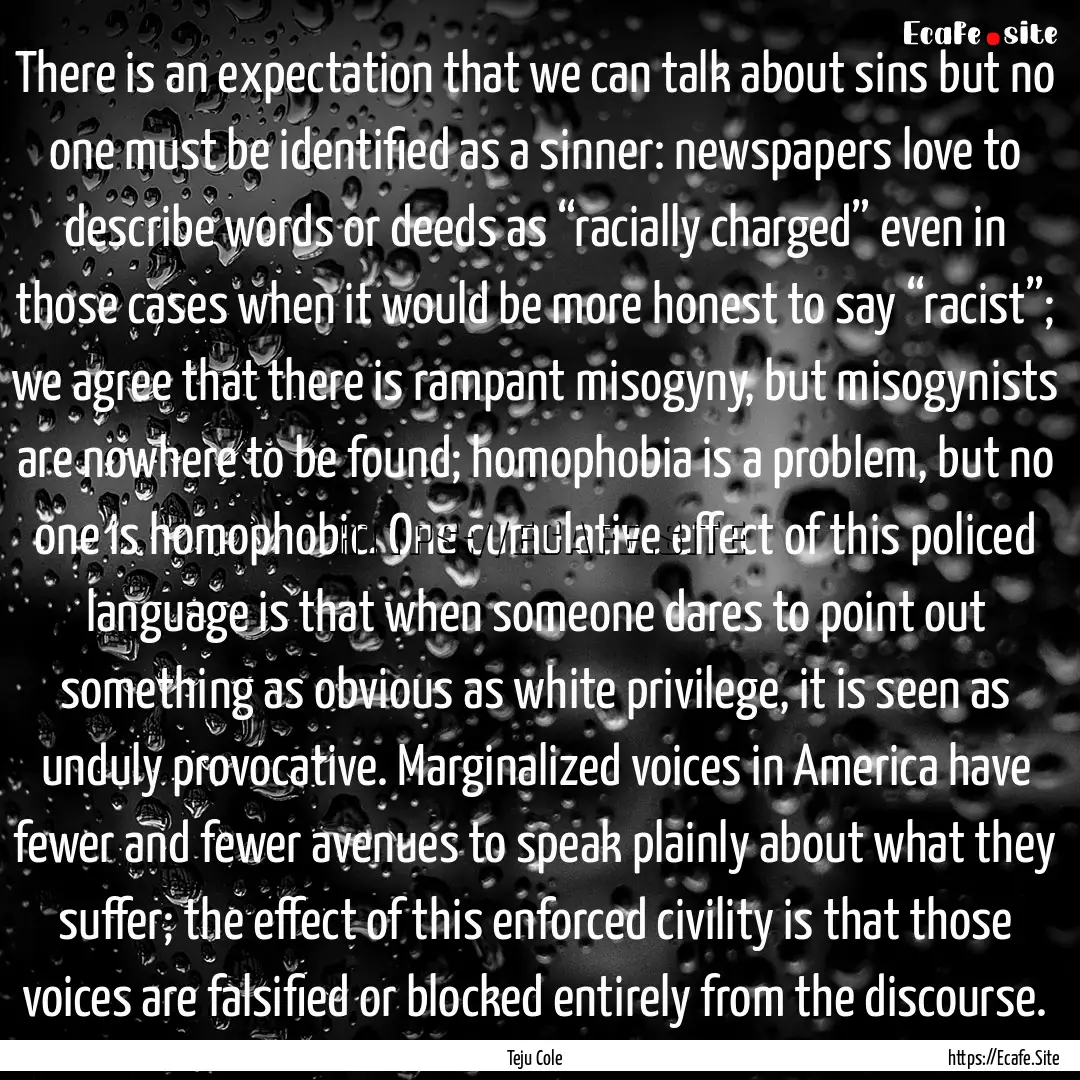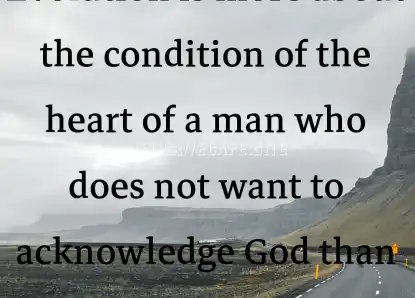
Report, if you have a problem with this page“ There is an expectation that we can talk about sins but no one must be identified as a sinner: newspapers love to describe words or deeds as “racially charged” even in those cases when it would be more honest to say “racist”; we agree that there is rampant misogyny, but misogynists are nowhere to be found; homophobia is a problem, but no one is homophobic. One cumulative effect of this policed language is that when someone dares to point out something as obvious as white privilege, it is seen as unduly provocative. Marginalized voices in America have fewer and fewer avenues to speak plainly about what they suffer; the effect of this enforced civility is that those voices are falsified or blocked entirely from the discourse. ”

Teju Cole
From : Known and Strange Things: Essays



